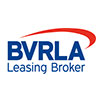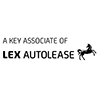Key considerations
As a business owner myself, I’ve often queried with my accountant whether it may be tax-efficient to finance my own car through the business, and typically received back the same response - “Absolutely not”.
From the turn of the century, successive governments levied more and more company car tax (or ‘Benefit-in-Kind’) on company car drivers. By the year 2010, if you had leased or owned a Range Rover Sport through the business as a business owner, you were paying out in the region £5-7,000 in tax alone for the benefit of running a business vehicle. That is before you paid for the car, the fuel, the insurance and so on.
Accountants, finance directors and advisors rightly responded, and businesses moved their senior staff to cash allowances, whilst business owners funded their car personally, after tax, and then claimed back business mileage where relevant.
Now, the situation has changed markedly. In fact, a business owner running a £70,000 vehicle through the business can now pay as little as £150 a year in tax on that benefit. That is before the various tax reliefs they’ll be claiming on all the other business expenses related to the car. But, there is a catch. You’ll need to be running a Battery Electric Vehicle (BEV) to receive that level of tax relief.
Before we get into the pluses and minuses of BEVs vs. Plug in Hybrids (PHEVs), let us examine why this is such a compelling time to make the switch to a fully electric vehicle.
.png)
Personal Tax
A company Director currently paying for their car post-personal taxation, whether Personal Contract Purchase (PCP) or Personal Contract Hire (PCH), typically has a pre-tax cost of up to 65% higher than the monthly payment. Of course, some of this is offset if you claim business mileage, but that also has to help pay for the maintenance, insurance and fuel.
Ask yourself (or your professional advisor), what is the gross income you pay yourself to end up with the cash needed to pay your monthly car payment?
Company Tax
A company Director/shareholder benefits from the company tax savings:
- The cost of putting the lease through the business is 100% allowable on electric cars for corporation tax (not always the case on combustion engine cars where many cars have a percentage of the lease that is disallowable due to emissions).
- Assuming the business is VAT-registered and can claim VAT relief, 50% of the VAT on the lease payment is retrievable.
- Savings on National Insurance Contributions are also relevant where salary sacrifice is being used.
Running Costs
- Insurance – business car insurance is a business expense. For company directors this typically covers personal use.
- Fuel – electric charging typically costs circa. 40% of the equivalent cost of diesel and petrol engines. Typical 10,000 mileage users will save circa. £1000 per year of fuel costs.
- Maintenance – with 100% of the VAT reclaimable on all maintenance costs, this is also considered a business expense.
Environmental Impact
As a challenger to the status quo within our industry, we’ve always rejected the premise that cars have to be negative for the environment. In a world of petrol-heads, we’ve been supplying fully electric vehicles since 2015 and aim to be the UK’s first net-zero car provider by 2025.
Conclusion
The benefits of shifting your personal car into the business and perhaps also those of your senior team, are clear and incontestable.
What matters next is the expertise with which business implement this process, and our recommendation would be that no matter who you choose, you should consult proven experts in the field, as mistakes with the choices of electric car, of chargepoint systems, and indeed fuel technology, can have long-term impacts.
With tax policy on electric vehicles set by the UK government for the next 3 years (April 2021-March 2024), and with typical electric vehicle leases running 2-3 years, now is the time to make the most of this exceptional saving.
It is important to note that Pike + Bambridge are not tax advisors, and you should always consult with your accountant and/or professional advisors before making decisions related to tax efficient vehicle provision.
Piers Bambridge has conducted CPD sessions with the Chartered Institute of Managemnet Accountants (CIMA), and regularly contributes to the Institute of Chartered Accountants of Scotland (ICAS) with regards to fleet management, and electric vehicles and their place in today’s business finance world.








